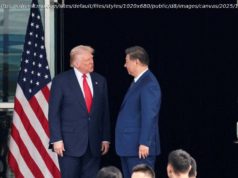 Harare – This is the grim concrete enclosure that’s now home for some of
Harare – This is the grim concrete enclosure that’s now home for some of
the latest batch of elephants shipped from Zimbabwe’s beautiful Hwange National
Park to a zoo in China.
China’s Shanghai Daily has published a black and white picture
of what it says are two of six « African elephants » just arrived at
Hangzhou Wildlife World in Zhejiang
Province.
Though the site doesn’t confirm that these elephants came from
Zimbabwe, Zimbabwe’s Parks and Wildlife Management Authority this week
confirmed the export in late December of 35 elephants to China. Hangzhou
Wildlife World is one of three zoos named by the paper as destinations for the
elephants.
The export has provoked criticism from animal lovers who say
it’s unfair to separate young elephants from the rest of the herd. But Zimparks
says the trade is necessary « to generate financial resources for
conservation programmes ».
There will be concerns raised not only over the concrete
enclosure the animals are being held in (apparently they’re currently in
quarantine) but also over the diet they’re being fed. It consists of
« carrots, sugar cane, apples and hay » – a far cry from the diet
Zimbabwe elephants would be accustomed to in Hwange National Park, where they
were captured. Elephants in Zimbabwe might occasionally eat sugar cane if they
raid fields, but only in the southeast of the country.
The Shanghai Daily said: « Two of the elephants are male and
the rest are female. The animals weigh about 1 ton on average. They are all
about 1.6 metres tall and around three years old.
« The six elephants must spend 30 days in routine isolation
for quarantine and inspection purposes before they can meet visitors in the
spring, » the report said.
Wildlife At Risk International, an animal rights group, lamented
the conditions the elephants were being held in. « Wild elephant calves,
brutally taken from their mothers, flown halfway across the globe, this is what
their new world looks like, » the group said in an online update.
Zimbabwe says it began exporting elephants to China in July 2015
and had by early last year exported about 100 sub-adult elephants, mostly aged
between five and seven. Environment Minister Oppah Muchinguri says she will
carry on with the trade despite opposition.






